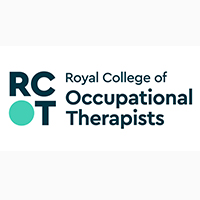Undergraduate Course
Occupational Therapy BSc (Hons)
Gain the knowledge and skills you need to start your career as an occupational therapist.
/prod01/yorksjacuk/media/NEW-OT-HEADER.jpg)
Occupational therapy is a science-based degree leading to a health and social care profession, and is regulated by the Health and Care Professions Council. Occupational therapists help people to engage in their everyday occupations, supporting them to lead a fulfilling and healthy life. Our Occupational Therapy degree is inclusive and innovative. We use evidence- based concepts and practice, and teach through a mix of contemporary and traditional learning approaches.
- Available in Clearing
94% Occupational Therapy students responded with a 94% positivity score for how free they felt to express their ideas, opinions and beliefs during their studies. (National Student Survey 2024)
94% 94% of Occupational Therapy students felt that their career prospects have improved as a result of their course. (National Student Survey 2024)
York campus
- UCAS code – B930
- Duration – 3 years full time, 4 to 6 years part time
- Start date – September 2025, September 2026
- School – School of Science, Technology and Health
Minimum entry requirements
120 UCAS Tariff points
5 GCSEs at grade C/4 (or equivalent) including English Language, Maths and Science.
Tuition fees
UK 2025 entry £9,535 per year full time
International 2025 entry £14,700 per year full time
Discover Occupational Therapy
Hear from students who are studying Occupational Therapy with us
Course overview
On this accredited course you will master the skills, knowledge and professional behaviours you need to succeed as an Occupational Therapist. We have been teaching Occupational Therapy for over 45 years. We hold a strong professional identity with a commitment to ensure students fulfil their potential as occupational beings. We are ready to share our expertise with you and help you to grow as a person.
Our course is accredited by the Health and Care Professions Council (HCPC) and we have designed our course in line with the Royal College of Occupational Therapists (RCOT). Successful completion of all modules and placements will enable you to register with the HCPC, to practice under the protected title of State Registered Occupational Therapist.
You will become a part of a thriving community with a variety of network collaborations with local occupational therapists, local community groups and charities, as well as working with other people involved in the health and wellbeing of others. This support network will allow you to gain experience on placements in various settings, and study theories backed up by substantial evidence. Your placements will take place in each year of study.
We offer opportunities to be entrepreneurial, innovative, and enterprising and we hope to support your future ability to scope and broaden the horizons during your course. Teaching matches contemporary drivers within health, wellbeing and social care and will enable you to become a competent, confident Occupational Therapist.
Study routes
We offer various routes for study and we have many flexible routes for those who are balancing work, life commitments and study. We have 4 routes for you to choose from:
- Full time for 3 years
- Complete your course by attending 2 years full time and 2 years part time (4 years in total)
- Complete your course by attending 1 year full time and 4 years part time (5 years in total)
- Complete your course entirely part time (6 years in total)
Specialist learning facilities
See our specialist facilities in 360 degrees. On our virtual tour you can select an image to start exploring the learning spaces and equipment you'll use on this course.
You'll be able to click and drag on an image to look around the space.
Course structure
Year 1
Our academic year is split into 2 semesters.
Full time - in your first year you will study:
- 3 compulsory modules in semester 1
- 3 compulsory modules in semester 2
You can find out which modules are available in each semester on the Course Specifications.
Modules
Credits: 20
Compulsory module
This module introduces you to the concepts of occupation and people as occupational beings. This will include exploring the importance of occupational engagement, participation and identity, as well as appreciating the complex relationships between occupation, health and wellbeing. This module is an essential foundation for your understanding to develop.
Credits: 20
Compulsory module
This introductory module focuses on preparing you with professional and personal skills. This will be so you are aware of the practice expectations and regulatory standards of professional practice and sets the foundations for learning on semester 2.
Credits: 10
Compulsory module
This module is your first opportunity to apply your learning in a practice setting. Your first placement will be full time, with an additional couple of weeks teaching at the University. While on placement you will work alongside, and be supervised by, a qualified occupational therapist. They will guide you and help you to develop basic skills to work as a member of a professional team.
Credits: 20
Compulsory module
You will be expected to develop an understanding to the foundations, philosophy and processes of occupational therapy. You will explore occupational participation and performance, along with their relationship with health and wellbeing from a range of perspectives.
Credits: 20
Compulsory module
As your knowledge progresses, you will further develop and establish your ability to relate and adhere to:
- Regulatory standards of professional practice
- Occupational therapy specific professional guidelines
- Policies within health and social care provision
Credits: 30
Compulsory module
This practice-based module will enable you to build on the knowledge, skills and attitudes gained in earlier practice placement module.
Year 2
Full time - in your second year you will study:
- 2 compulsory module in semester 1
- 3 compulsory modules in semester 2
You can find out which modules are available in each semester on the Course Specifications.
Modules
Credits: 20
Compulsory module
On this module, you will develop knowledge and skills in evidence-informed application of the occupational therapy process. This can include both individual and group interventions in a range of contemporary contexts and settings.
Credits: 20
Compulsory module
It is important to analyse and assess the contextual biographical and environmental factors that act as barriers to occupation. Therefore, you will use an occupational justice framework to consider strategies to enable people to overcome barriers to occupational participation.
Credits: 20
Compulsory module
On this module, you will further develop professional and personal attributes and skills to facilitate occupational participation with people who are situated in complex contexts and environments.
Credits: 20
Compulsory module
In a range of contemporary settings you will develop skills to promote the occupational therapists’ role where they are the sole professional in the field. There is a focus on interventions that promote health/wellbeing particularly with long term conditions. You will learn to assess local population needs through a strengths and assets-based approach.
Credits: 40
Compulsory module
Through this practice-based module you will continue to develop the knowledge, skills and values gained in previous practical placement modules. You will gradually take on more responsibility as you progress through your practice placement.
Year 3
Full time - in your third year you will study:
- 2 compulsory module in semester 1
- 3 compulsory module in semester 2
You can find out which modules are available in each semester on the Course Specifications.
Modules
Credits: 20
Compulsory module
Leadership is a key element in Occupational Therapy. You will explore the theories and strategies of leadership and change management in order to develop services applicable to health and social care.
Credits: 40
Compulsory module
On this module you will consider, investigate and conduct a research project related to a specific area of practice or theory. This will prepare you to meet the Royal College of Occupational Therapists code of Conduct and Professional Ethics standards. You will conduct an ethically sound, well managed project with the supervision of an experienced member of the academic team.
Credits: 20
Compulsory module
You will consider the ‘4 Pillars of Practice’ and your life-long continued professional development for employability, as well as how to promote yourself and the occupational therapy profession.
Credits: 40
Compulsory module
On this practice-based module you will continue to develop the knowledge, skills and values gained in previous practical placement modules. As this will be your final practice placement, you will bring together all of the experience and skills you have gained throughout the course.
Teaching and assessment
Teaching and learning
Your modules will increase in complexity as you progress through your degree. You will learn through:
- Lectures
- Seminars
- Individual and group tutorials
- Interactive workshops
- Practical skills workshops
- Professional practice placements
Your contact time can vary each week but will usually be 12 to 18 hours a week. We schedule our taught sessions between 9.00am and 6.00pm, Monday to Friday.
You will need to conduct independent study outside of this time. This might include reading, research and coursework preparation. You can also arrange academic tutorials to receive feedback on your work and discuss the course content.
Assessment
Assessment types vary from module to module. Some of your assessments might include:
- Portfolios
- Presentations
- Oral exams known as viva
- Research or service evaluation proposals
- Research articles
- Service evaluation reports
There will also be other assessments that do not count towards your final grade but are an important part of developing your work. For each assessment you will have the chance to talk to a tutor about your work before submission. Each assessment will be marked and returned with feedback so you can improve your academic writing.
Placements
One third of the course is dedicated to professional practice placements experiential learning (over 1000 hours). These summative assessed hours are divided into four separate professional practice placements (2 are in the first year of the course, 1 is at the end of the second year and the last is 1 is towards the end of the course). These placements provide you with a broad range of experience within a very wide range of settings, for example:
- Hospital based in-patient services - orthopaedics, cardiology, stroke, acute mental health, trauma, elderly, forensic mental health or secure units.
- Day or clinic-based services - stroke rehabilitation, neurological out-patients, frailty services, paediatrics, crisis intervention teams, early intervention psychosis services, palliative care.
- Community based services - community housing team, community mental health, community dementia services, community learning difficulty teams.
- Charity and non-governmental organisations - working with people who are homeless, refugees and/or asylum seekers.
- Non-traditional settings (Role Emerging Placement) (optional) - therapeutic horticultural and allotments, social prescribing groups, social enterprises, schools, colleges and charity sectors.
Career outcomes
Your future with a degree in Occupational Therapy
This course will prepare you for a career as an occupational therapist in a variety of professional settings. You will also develop diverse skills that can be used in a range of jobs. These include data collection and analysis, creative problem solving and communication skills.
This degree could be the first step toward your career as a:
- Occupational therapist
- Art therapist
- Care manager
- Ergonomist
- Health improvement practitioner
- Social worker
Discover more career options on Prospects careers advice pages.
You could also progress onto a postgraduate degree and take your learning even further.
Postgraduate courses at York St John University
Occupational Therapy (pre-registration) MSc
PGCE at York St John University
Further your education and work towards a rewarding career in teaching by studying for a Postgraduate Certificate in Education (PGCE) after you graduate. For over 180 years, we have worked with enthusiastic individuals who want to shape the future of young people across both primary and secondary school settings. You'll spend a lot of time in schools, developing your practice by teaching. You will graduate with Qualified Teacher Status and become part of the well respected alumni of York St John educators.
Alumni stories
Visit our YSJ Snapshots blog to see what our past students from across the University have done with their York St John degrees.
Whatever your ambitions, we can help you get there.
Our careers service, LaunchPad provides career support tailored to your ambitions. Through this service you can access:
- Employer events
- LinkedIn, CV and cover letter sessions
- Workshops on application writing and interview skills
- Work experience and volunteering opportunities
- Personalised career advice
This support doesn't end when you graduate. You can access our expert career advice for the rest of your life. We will help you gain experience and confidence to succeed.
Entry requirements
Qualifications
Minimum entry requirements
120 UCAS Tariff points
5 GCSEs at grade C/4 (or equivalent) including English Language, Maths and Science.
Calculate your UCAS Tariff points
You will need 120 UCAS points from the following qualifications:
| Qualification | Minimum grade |
|---|---|
| A level (A2) | BBB (excluding General Studies) |
| BTEC Extended Diploma | Distinction, Distinction, Merit |
| International Baccalaureate | 34 points |
| Access to Higher Education Diploma | 45 credits at level 3 |
| Previous study in Higher Education (HE) | Foundation Year that aligns with the learning outcomes for the course |
| A combination of qualifications | 120 UCAS points or higher |
| T Level | Merit in a Health and Science course |
We do not accept Adult Numeracy or Key Skills instead of GCSE Maths. We do not accept Adult Literacy or Key Skills instead of GCSE English Language.
Additional requirements
For entry onto this course, you will also need:
- A Disclosure and Barring Service (DBS) check
- A satisfactory medical report
If you have previously been enrolled in an Occupational Therapy Pre-registration degree or any other health professional education course must submit a self declaration confirming that there are no previous fitness to practice concerns. This is a requirement of the Royal College of Occupational Therapists.
Interview
If we think your application is outstanding, we will invite you for an interview. We do not interview every applicant. Find out more about the Occupational Therapy interviews, what you will need and what you can expect on the day.
International students
If you are an international student you will need to show that your qualifications match our entry requirements.
Information about international qualifications and entry requirements can be found on our International pages.
If English is not your first language you will need to show that you have English Language competence at IELTS level 7.0 (with no skill below 6.5) or equivalent.
International entry requirements
Terms and conditions
Our terms and conditions, policies and procedures contain important information about studying at York St John University. You can read them on our Admissions page.
Fees and funding
Tuition fees are reviewed annually and may be increased in line with inflation, prior to the start of each academic year, and subject to the fee cap set by the UK government. Such increases to fees will be at the Retail Price Index (RPI) forecast rate, as advised by the Office for Budget Responsibility and the Office for Students. The only exception to this would be where government legislation deems otherwise.
If a rise in the tuition fee becomes necessary, we will endeavour to inform you as soon as possible and we will explain the reason(s) for the increase. Any tuition fee increase will only be applied from the start of the next academic year and will not be applied 'in year'.
UK 2025 entry
- £9,535 per year for full time study
- £7,145 per year for the first 4 years if you study part time
This price applies to all UK, Jersey, Guernsey and Isle of Man students.
You can find out more about funding your degree by visiting our funding opportunities page.
NHS Training Grant
If your application to this course is successful, you can apply for extra financial support from the NHS. This is a non-means-tested grant. Find out how to apply.
Tuition fees
UK 2025 entry £9,535 per year full time
International 2025 entry £14,700 per year full time
International 2025 entry
The tuition fee for 2025 entry to this course is £14,700 per year for full time study.
This price applies to all students living outside the UK.
Due to immigration laws, if you are an international student on a Student Visa, you must study full time. For more information about visa requirements and short-term study visas, please visit the International Visa and Immigration pages.
Find out more about funding your degree.
Additional costs and financial support
There may also be some additional costs to take into account throughout your studies, including the cost of accommodation.
Course-related costs
While studying for your degree, there may be additional costs related to your course. This may include purchasing personal equipment and stationery, books and optional field trips.
Study Abroad
For more information on tuition fee reductions and additional costs for studying abroad, please visit our study abroad pages.
Accommodation and living costs
For detailed information on accommodation and living costs, visit our Accommodation pages.
Financial help and support
Our Funding Advice team are here to help you with your finances throughout your degree. They offer a personal service that can help you with funding your studies and budgeting for living expenses.
For advice on everything from applying for scholarships to finding additional financial support email fundingadvice@yorksj.ac.uk.
Course highlights
Accredited by the HCPC and RCOT
This means that when you graduate you can apply to work under the protected title of Occupational Therapist.
Research experience
Work with a lecturer on their research as part of our Students as Researchers initiative. Current projects include working with asylum seekers, refugees and people in care homes.
Practise your skills
We have bathroom and kitchen simulation areas, so you can practise your assessment and intervention skills in different settings. We also have moving and handling equipment in our practical rooms.
1,000 hours of experience
While you work with us, you will achieve at least 1,000 hours of experience through professional placements. You can work in different settings to experience a variety of roles within occupational therapy.
Visit our blog
Find out more about our recent research, events and work on our blog.

Steph Occupational Therapy
I love being part of such a friendly university and being able to study and work in a beautiful city. I really enjoy how practical, varied and interactive the teaching is. As well as having lectures and seminars, we have workshops where we develop practical skills, talks from service user’s and clinicians, visits to local services, and of course placements.

Alex Occupational Therapy
Studying Occupational Therapy at York St John University has been everything I expected and more. The small cohort makes it easy for you to build up working relationships and long lasting friendships, as well as the inspiring lecturers who never fail to surprise you with their experiences and knowledge.

Laura Occupational Therapy
The lecturers all have extensive experience in practice and this shines through in their teaching. Relating theory to practice really helps cement the learning. All the learning focuses on practice. It is clear how the skills and knowledge we are gaining apply to working within health and social care settings.


/prod01/yorksjacuk/media/content-assets/safe-images/undergraduate-course-pages-2021/carousel-1600x1200/Occupational-Therapy-Carousel-2.jpg)
/prod01/yorksjacuk/media/content-assets/safe-images/1600-x-1200/York-St-John-allotment-view.jpg)
/prod01/yorksjacuk/media/content-assets/safe-images/1600-x-1200/OT-carousel-5.jpg)
/prod01/yorksjacuk/media/content-assets/safe-images/1600-x-1200/OT-carousel-1.jpg)
/prod01/yorksjacuk/media/content-assets/safe-images/1600-x-1200/OT-carousel-2.jpg)

/prod01/yorksjacuk/media/content-assets/safe-images/500-x-500/YORK-SHOTS---WEB-23-(1).jpg)
/prod01/yorksjacuk/media/content-assets/2019-courses/decision-day.jpg)
/prod01/yorksjacuk/media/content-assets/safe-images/500-x-500/why-choose-YSJ-500x500.jpg)
